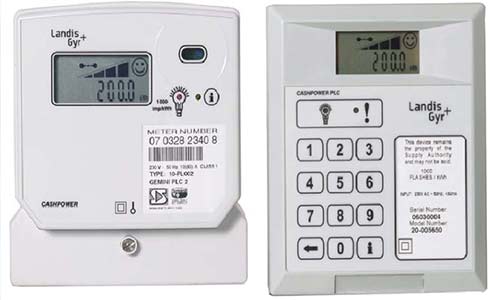COURTROOM NEWS 14/02/2022
Burden Is On Nigerian Correctional Centre To Prove That An Inmate Is Not Entitled To Remission — Court Rules

The Federal High Court sitting in Calabar has ruled that the burden of proof lies with the Nigerian Correction Service To Prove that an inmate is not entitled to remission. The Court, Per Hon. Justice Ijeoma L. Ojukwu, in suit No. : FHC/CA/CS/72/2021 between CDR. OA Kadiri V the Nigerian Correctional Service. Other Respondents in the suit are the Cross River State Comptroller general of the Service and the Deputy Comptroller General, Afokang Calabar as the 2nd and 3rd Respondents
Background facts
A Naval Officer, CDR. OA Kadiri, was tried and convicted by a Special Court Martial on the 11th of December, 2020 and part of the sentenced imposed was one-year prison sentence.
It was also averred that after the conviction and sentence, the applicant was kept in the cell and in custody by the Nigerian Navy. On the 13th day of September, 2021 the Nigerian Navy transferred the applicant to the custody of the Respondents at Afokang Correctional Centre despite the fact that by the sentence of 11th day of December, applicant ought to have completed her sentence on the 11th day of September, 2021 in view of the provisions of Orders 85, 88 and 89 of the Nigerian Prison Service Standing Orders Revised Edition 2011.
Consequently, the Applicant instituted an action before the Federal High Court, Calabar by way of Motion on Notice for judicial review by way of Order of Mandamus. The Applicant sought the following reliefs:-
- A declaration that pursuant to the provisions of Section 157 of the Armed Forces Act, CAP A20 Laws of the Federal of Nigeria and Orders 85, 88 and 89 of the extant Nigerian Prison Services Standing Orders Revised Edition, 2011, the Respondents are under an obligation to release the Applicant from its custody having served her one year term of imprisonment passed on by the Special Court Martial on the 11th of December, 2020.
- A declaration that the failure of the Respondents to release the Applicant from its custody having served her one year term of imprisonment despite Applicant’s Counsel letter of demand to that effect amounted to a refusal/failure to discharge their constitutional and/or public duty contrary to the provisions of Section 157 Armed Forces Act, CAP 20 Laws of the Federation of Nigeria and Orders 85, 88 and 89 of the Nigerian Prison Service Standing Orders Revised Edition, 2011 and therefore unconstitutional and unlawful.
- An Order of Mandamus directing and/or compelling the Respondents to release the Applicant from the Nigerian Correctional Centre Afokang, Calabar forthwith having served her one-year sentence which commenced on the 11th December, 2020 and ended on 11th September 2021 in line with Section 157 Armed Forces Act, CAP A 20 Laws of the Federation of Nigeria and Orders 85, 88 and 89 of the Nigerian Prison Services Standing Orders Revised Edition, 2011.
- An Order directed against each of the Respondents jointly and severally to pay to the Applicant damages in the sum of N50,000,000.00 (Fifty million naira only) on the footing of exemplary and aggravated damages for the oppressive, arbitrary, capricious, illegal and ultra vires acts of each of the Respondents in their unlawful detention of the Applicant.
- And for such further Orders as the Honourable Court may deem fit to make in the circumstances of this case.
The 4th relief was later withdrawn by the Applicant.
DECISION OF THE COURT.
The position of the Applicant was that by the provisions of Order 85 of the Standing Order of Nigerian Prison Service Revised Edition of 2011, the Applicant is entitled to Remission which is awarded to prisoners sentenced to imprisonment, whether by one sentence or by consecutive sentences, for a period exceeding one month for good conduct and Industry. Order 89 of the Standing Order prescribes that computation of remission shall be by dividing the sentence by three (3) and the result shall then be deducted from the Latest Day of Release (LDR) and the day following is the date of discharge.
By this calculation, it thus follows that the applicant’s date of release is the 11th day of August 2021. But the Respondent had argued that remission is not automatic and that it was essentially presumptuous of the Applicant to state that she was due for release having earned a remission.
The Court held that that even though the grant of remission is not automatic, it is only applicable where the sentence is for more than 30 days and where the prisoner has shown hard work, good conduct and industry.
“In that vein, I do not agree with the position of the Applicant that ‘industry’ used in this provision refers to unskilled labour or to artisans. ‘Industry’ ordinarily means diligence, conscientiousness, determination and perseverance. One does not have to be an unskilled labourer or an artisan to exhibit those qualities. It is expected and celebrated in all professions, skilled and unskilled.
“Be that as it may, I am also of the view that since the Respondents are imbued with the powers to award remission, it behooves the Respondents to show that the Applicant is not deserving, entitled or eligible for remission. The Applicant has claimed remission as of right in view of Order 85 of the Standing Order and the length of her imprisonment. Where the respondents feel otherwise, the burden is on them to show that applicant is not qualified or deserving of remission under the Standing Order since the applicant cannot appraise herself on the indices or yardsticks prescribed by the Standing Order. That burden has not been discharged. The respondents have the burden to establish that applicant has mis-conducted herself by violating any rules or regulations of the Custodial Centre or that she has been remise or irresponsible in carrying out any instructions or responsibilities given to her while in custody. Order 70 of the Standing Order provides that remission may be lost for disciplinary causes. Having not done so, I cannot agree with the respondents that the applicant is not entitled to remission.” Justice Ojukwu held
The next issue was whether the Applicant is entitled to be released from the custody of the Respondents even when she was also sentenced to pay the sum of N40,750,929.56 as restitution which was the basis upon which the Respondents kept her in detention.
The Court held that by the provisions of Section 174 of the Armed Forces Act, (which is the applicable law here) where a person has been convicted by a court-martial of unlawfully obtaining property as in the instant case, the court-martial may order compensation or restitution to the owner of the property allegedly stolen. Section 174(7) provides that an order made under this section shall not have effect until it is confirmed by the confirming authority. The applicant by the exhibits relied on and submission of Joe Agi SAN including the exhibits submitted by the respondents validate the position that the sentence of the applicant has been confirmed. Exhibit A of the Applicant and exhibits A and A1 of the respondents are the documentary evidence which show that the sentence was confirmed and it took effect from the date it was pronounced, being the 11th day of December 2020.
It further held that Section 174 (8) of the Armed Forces Act provides that the operation of an order of restitution under this section shall be suspended on any case, until the expiration of the period prescribed under Part XVI of this Act as the period within which an application for leave to appeal to the Court of Appeal against the conviction must be lodged; and if an application is duly lodged, until either the application is finally refused or is withdrawn or the appeal is determined or abandoned. That it cannot therefore make any order that may run contrary to the provisions of the law or short-circuit the right of the Applicant to appeal to the Court of Appeal or even prejudice the decision of the Court of Appeal with respect to the judgment of the Court-Martial.
In the event that the Applicant fails to take the options provided in Part XV1 of the Armed Forces Act, the Respondents will be at liberty to take the necessary action as provided under the Armed Forces Act.
Premised on the provisions of the law referred to above, the Court opined “that Respondents cannot keep the Applicant longer than the period anticipated by law. The letter from the Headquarters of Eastern Naval Command of the Nigerian Navy to the Commander NNS Victory, Naval Base Calabar speaks eloquently of the fact that implementation of the sentence of the applicant is particularly with respect to Counts 3 and 10. Count 2 was not mentioned since it was suspended in view of the Act.
“The Committal Order for imprisonment of the Applicant in Form No. 20 (Section 245) was for a period of one-year imprisonment, beginning from 11th December 2020. This letter even requested the detaining authority to release the applicant on the due date. Similarly, the letter of 13th September 2021 from NNS Victory to the Superintendant Nigeria Correctional Service, Afokang, Calabar clearly stated that applicant was dismissed from the service of the Nigerian Navy in Count 3 and was sentenced to imprisonment of one year in respect of Count 10. Count 2 for Restitution was never mentioned. The letter of 13th September 2021 from NNS Victory confirmed that applicant had served part of her custodial sentence with them and should serve ‘the remaining’ term in their custody. The due date can only be ascertained from computation under the Standing Order.
“It is curious that Respondents chose to keep the Applicant despite the fact that there was nothing to show that she was not eligible for remission, or that she had exhibited any character inimical to the discipline of the Correctional Centre or that she failed to carry out any responsibility or task that was given to her in the facility or that she was in breach of any rules or regulation prescribed for detainees. The respondents are in possession of the documents referred to in this case, which were even tendered by them, which specified the period of detention of the applicant, yet they chose to detain the applicant longer than the period prescribed by the law despite the demand made by applicant for the performance of that duty. This is not in tandem with the law. See ATTA v C.O.P. (2003) 17 NWLR (PT.849) 250., FAWEHINMI v AKILU (1987) 4 NWLR (PT.67) 797.
“Government Institutions are responsible institutions manned by respectable men and women and must be seen to be balanced and objective in their decisions and must be not be found to be wanting in bona fides. The law recognizes that where there is a right, there is a remedy, therefore the respondents are enjoined to exercise their rights within the ambit of the law and shall not take any actions arbitrarily except through the procedure prescribed by the Armed Forces Act.”
The Court therefore declared;
- “That pursuant to the provisions of Section 157 of the Armed Forces Act, CAP A20 Laws of the Federal of Nigeria and Orders 85, 88 and 89 of the extant Nigerian Prison Services Standing Orders Revised Edition, 2011, the Respondents are under an obligation to release the Applicant from its custody, the Applicant having served the one-year term of imprisonment passed against her by the Special Court Martial on the 11th day of December, 2020 in accordance with the law.
It is hereby ordered;
- An Order of Mandamus of this Honourable Court is hereby made, compelling the Respondents to release the Applicant from Nigerian Correctional Centre Afokang, Calabar, Cross River State forthwith, the Applicant having served the one-year sentence which commenced on the 11th day of December, 2020 and ended on 11th day of September 2021 in line with Section 157 Armed Forces Act, CAP A 20 Laws of the Federation of Nigeria and Orders 85, 88 and 89 of the Nigerian Prison Services Standing Orders Revised Edition, 2011.
- The Respondents, officers, agents and assigns are hereby restrained from any actions that may be inimical to the rights of the Applicant as protected under the Constitution of the Federal Republic of Nigeria 1999.



